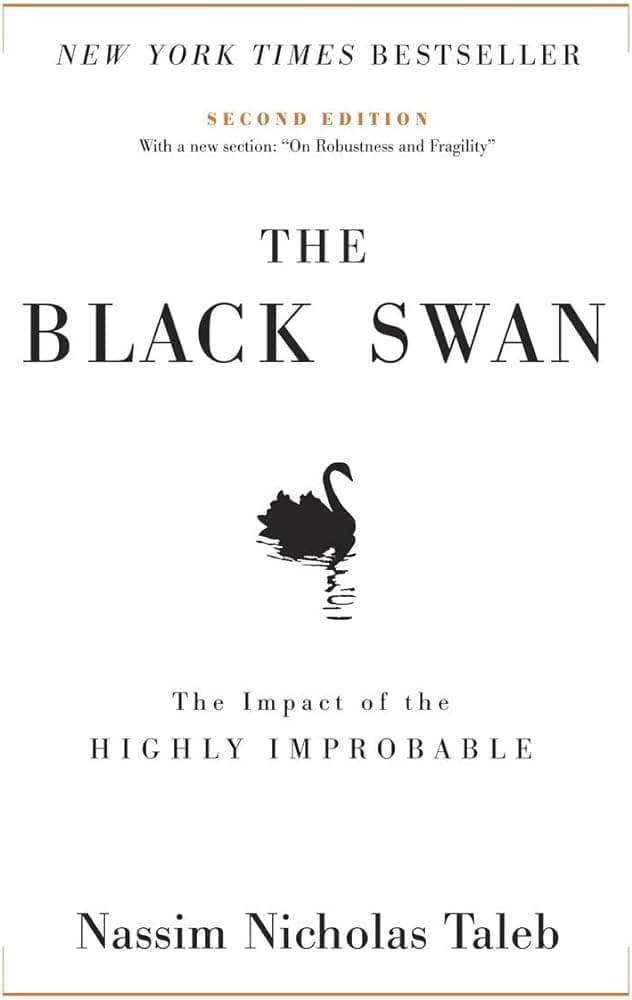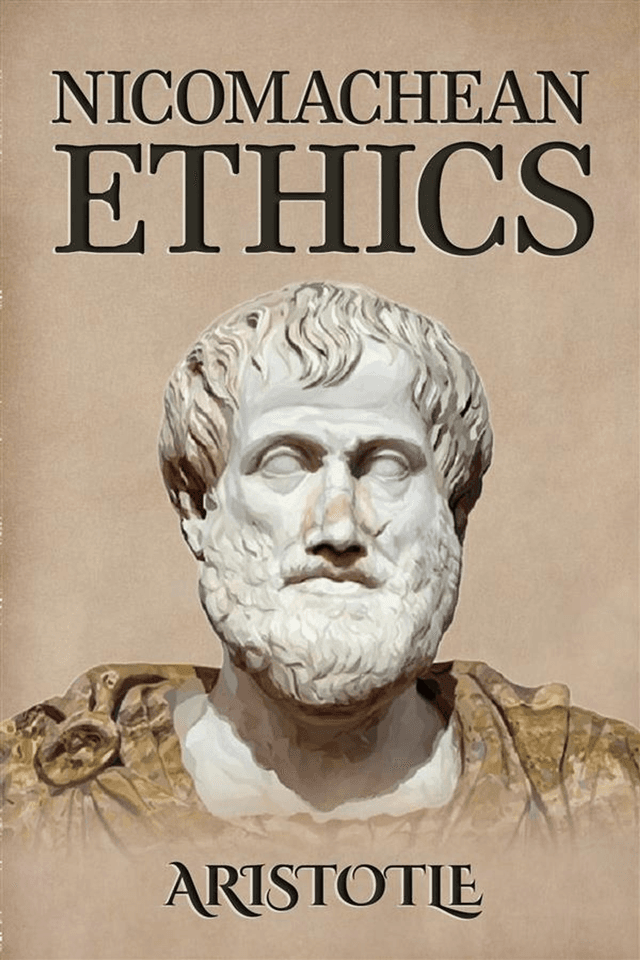The Black Swan by Nassim Nicholas Taleb vs. Nicomachean Ethics
The Black Swan by Nassim Nicholas Taleb
Skin in the Game may be nice but The Black Swan is the OG Nicholas Taleb. Read this book to learn how to think and avoid biases and reread at least once very couple of years.
Nicomachean Ethics
"Nicomachean Ethics," written by the ancient Greek philosopher Aristotle, is a foundational text in Western philosophy. This work explores the nature of ethical virtue and the path to a good and fulfilling life. Aristotle delves into concepts such as happiness (eudaimonia), virtue (arete), and the importance of practical wisdom (phronesis). The text is a detailed examination of how individuals can achieve moral and intellectual virtues through habitual practice and rational deliberation.

Reviews
Reviews
| Item | Votes | Upvote |
|---|---|---|
| No pros yet, would you like to add one? | ||
| Item | Votes | Upvote |
|---|---|---|
| No cons yet, would you like to add one? | ||
| Item | Votes | Upvote |
|---|---|---|
| Essential reading for students of philosophy and ethics | 1 | |
| Practical wisdom | 1 | |
| Offers profound reflections on ethics and the good life | 1 |
| Item | Votes | Upvote |
|---|---|---|
| Dense and complex | 1 |
Frequently Asked Questions
'The Black Swan' is known for its insights into randomness and decision-making, making it highly relevant in modern contexts, particularly in finance and risk management. In contrast, 'Nicomachean Ethics' provides foundational philosophical concepts about virtue and the good life, which have influenced ethical thought for centuries. The impact of each book depends on the reader's interests; those seeking practical applications in uncertainty may find 'The Black Swan' more impactful, while those interested in ethical philosophy may lean towards 'Nicomachean Ethics.'
'The Black Swan' offers practical wisdom in understanding and navigating unpredictable events, particularly in fields like finance and risk assessment. On the other hand, 'Nicomachean Ethics' emphasizes practical wisdom (phronesis) in ethical decision-making and living a virtuous life. Readers looking for insights into randomness and its implications may prefer 'The Black Swan,' while those interested in ethical living and virtue may find 'Nicomachean Ethics' more beneficial.
'The Black Swan' is generally considered more accessible and engaging for a broad audience, using contemporary examples to illustrate its points. In contrast, 'Nicomachean Ethics' is often described as dense and complex, requiring careful reading and contemplation. Therefore, readers looking for a straightforward read may find 'The Black Swan' easier to digest than 'Nicomachean Ethics.'
'The Black Swan' by Nassim Nicholas Taleb explores the concept of unpredictable and rare events that have a massive impact on the world. The book delves into how these events are often rationalized in hindsight, despite being unexpected. It encourages readers to understand and embrace uncertainty, and to recognize the limitations of predictive models and human biases.
Nassim Nicholas Taleb is a Lebanese-American essayist, scholar, statistician, and former trader and risk analyst. He is known for his work on probability, uncertainty, and randomness, and has authored several books including 'The Black Swan,' 'Antifragile,' and 'Skin in the Game.' Taleb's work mainly focuses on the unpredictability of events and how individuals and systems can be robust or even benefit from disorder.
The main themes of 'The Black Swan' by Nassim Nicholas Taleb include the impact of rare and unpredictable events, the flaws of predictive models, human cognitive biases, and the concept of robustness and fragility in systems. Taleb argues that these 'Black Swan' events are often underestimated and can have profound consequences on societies and economies.
You should read 'The Black Swan' by Nassim Nicholas Taleb to gain a deeper understanding of how rare and unpredictable events can shape our world. The book provides valuable insights into recognizing and mitigating biases, improving decision-making under uncertainty, and preparing for the unexpected. It’s a thought-provoking read that challenges conventional wisdom and encourages critical thinking.
'Nicomachean Ethics,' written by the ancient Greek philosopher Aristotle, is a foundational text in Western philosophy. This work explores the nature of ethical virtue and the path to a good and fulfilling life. Aristotle delves into concepts such as happiness (eudaimonia), virtue (arete), and the importance of practical wisdom (phronesis). The text is a detailed examination of how individuals can achieve moral and intellectual virtues through habitual practice and rational deliberation.
Pros of 'Nicomachean Ethics' include it being essential reading for students of philosophy and ethics, offering practical wisdom, and providing profound reflections on ethics and the good life. However, a con is that the text can be dense and complex.




















